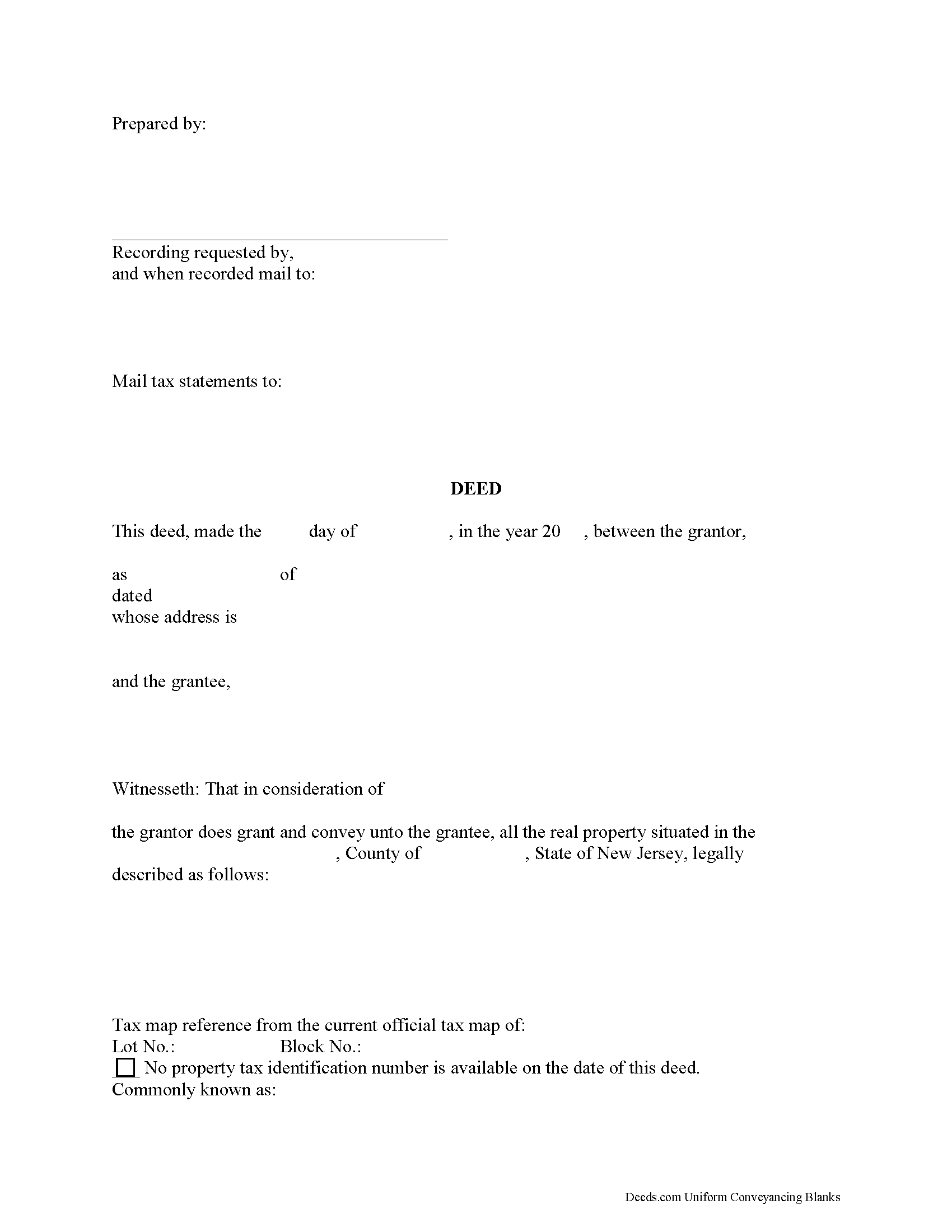Download New Jersey Trustee Deed Legal Forms

New Jersey Trustee Deed Overview

Transferring Living Trust Property in New Jersey
A trust is an arrangement whereby a settlor transfers his property to another person (trustee) for the benefit of another (beneficiary). Trusts containing real property are estate planning tools governed by the terms of the trust instrument, an unrecorded document executed by the settlor. In a living trust, the settlor generally serves as the trustee or co-trustee of the trust. Living trusts take effect during the settlor's lifetime, and also allow the settlor to determine how his assets will be administered in the event of his death. The settlor conveys real property to the trust by executing and recording a deed.
As of July 2016, New Jersey is among 31 states, together with the District of Columbia, to have enacted some version of the Uniform Trust Code, which "provides a comprehensive model for codifying the law on trusts" on a national scale [1]. The New Jersey Uniform Trust Code is codified at Title 3B, Chapter 31 of the New Jersey Statutes.
Under the Trust Code, trustees are authorized to exercise powers conferred by the terms of the trust, except where the terms of the trust limit powers and where there are express restrictions by statute (NJS 3B:31-69). Trusts may include the trustee's power to sell real property. When transferring real property from a living trust, the trustee -- who holds legal title to the property in trust -- executes a deed as the trust's representative.
In New Jersey, grantors may execute a deed with or without warranties or covenants of title. Statutory grantor's covenants for deeds in New Jersey include assurances that the grantor holds an absolute estate in fee simple at the time of the deed; that the grantor has authority to convey the land; that the grantee will possess and enjoy the land without interruption by the grantor; that the grantor has not done anything or executed any deed to encumber title to the land; and/or that the grantor will, at the grantee's reasonable request, take action to convey the land "more perfectly or absolutely" (46:4-2 et seq).
Trustees conveying real estate from a living trust in New Jersey generally execute a bargain and sale deed with covenant as to grantor's acts, but other covenants might be appropriate, depending on the circumstances. Contact a lawyer with questions about this important decision. Conveying property with a warranty deed, for example, opens the trustee to a high degree of liability, even if he has no knowledge of the quality of title prior to his appointment.
Conveyances of real property executed by a trustee must meet the same requirements for form and content for deeds in the State of New Jersey, including a legal description of the subject property and tax map reference. The deed should name the each granting trustee, as well as the name, date, and address of the trust on behalf of which the trustee(s) is/are acting. Each trustee should sign the deed in the presence of a notary public before recording the deed, along with any appropriate affidavits and a seller's residency form, in the county in which the real property is situated.
Each case is unique, so please consult an attorney for more information about transferring real property from living trusts in New Jersey.
[1] http://www.uniformlaws.org/LegislativeFactSheet.aspx?title=Trust%20Code
(New Jersey TD Package includes form, guidelines, and completed example)